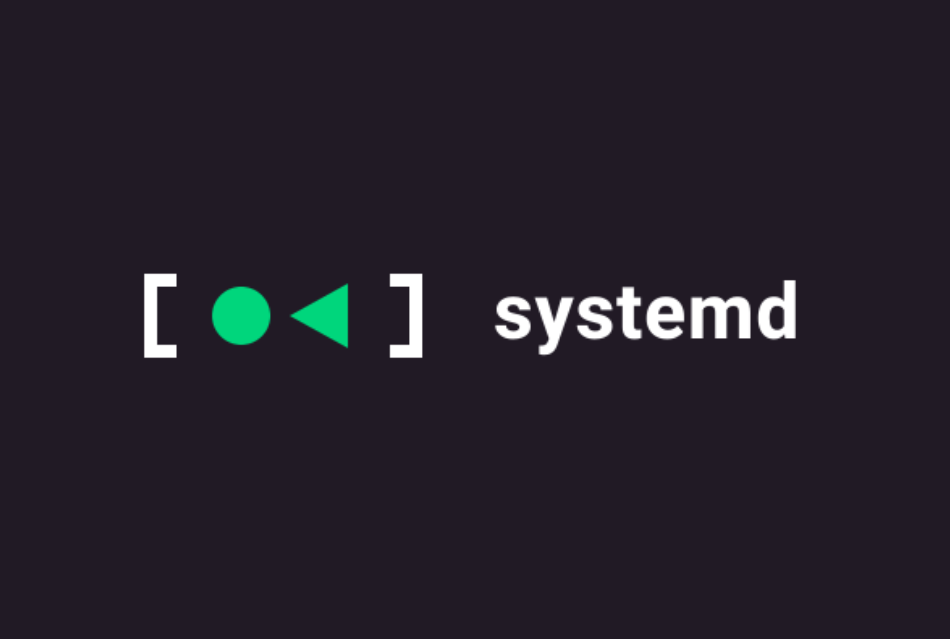Well… Poettering will eventually work his way up to browser engines and then we’ll get something efficient… Here’s the announcement:
"There’s a new component in systemd, called “engined”. Or actually, it’s not a new component, it’s actually the long existing “WebKit” engine now done properly. The engine is also a lot more fun to use than “WebKit” or “Blink” because you can finally have hundreds of tabs open in your browser without running out of RAM.
Coming soon in Coming for systemd 981.
How does
systemd-run/run0handle what/etc/sudoerscurrently does?I’m disappointed in how little technical discussion there is in this thread.
Idk
Dudes trolling, right?
Systemdeez nuts
Glad to see PoetteringOS has still not infected the *BSD family members /s And I’ll gladly use Doas on Linux if need be, thank you.
There’s a rewrite of sudo happening in rust, but he wants to throw out the SUID idea altogether?
when invoked under the “run0” name (via a symlink) it behaves a lot like a sudo clone. But with one key difference: it’s not in fact SUID. Instead it just asks the service manager to invoke a command or shell under the target user’s UID. It allocates a new PTY for that, and then shovels data back and forth from the originating TTY and this PTY.
That sounds like opening up the door to what windows is doing UAC and the wonderful vulnerability that the GOG Launcher had for privilege escalation.
I’m not a security researcher, but giving arbitrary users the ability to tel PID 1 to run a binary of the user’s choosing is… probably not what Pottering is suggesting, but opens up to such vulnerabilities. And if it’s written in C/C++ my trust is further reduced.
When does systemd stop? Linux without it is increasingly looking unlikely in the future. Are we not worried about it being a single point of failure and attack vector?
This isn’t a moan about the unix philosophy btw, but a genuine curiosity about how we split responsibilities in todays linux environment.
SystemD will consume the entirety of Linux, bit by bit.
- In 2032, SystemD announces they’re going to be introducing a new way to manage software on Linux
- In 2035, SystemD will announce they’re making a display system to replace the ageing Wayland
- In 2038, the SystemD team announces they’re making their own desktop environment
- In 2039 SystemD’s codebase has grown to sixteen times its size in the 2020s. SystemD’s announces they’re going to release replacements for most other packages and ship their own vanilla distro.
- In 2045 SystemD’s distro has become the standard Linux distribution. Most other distros have quietly faded away.
- In 2047, SystemD announces they’re going to incorporate most of GNU into SystemD. Outrage ensues from the Free Software Foundation, which vehemently opposes this move.
- In 2048, Richard Stallman dies of a heart attack after attempting to clone SystemD’s git repo. SystemD engages in a hostile takeover and all resistance within the FSF crumbles
- In 2050, SystemD buys the struggling RedHat from IBM for $61 million.
- In 2053, most world governments have been pressured into using SystemD.
- In 2054, Linus Torvalds, fearing for his life, begins negotiations to merge kernel development into SystemD
- In 2056, the final message on the Linux kernel development mailing list is sent.
- In 2060, SystemD agents assassinate the CEO of Microsoft.
- In 2063, after immense pressure from SystemD-controlled human rights organisations, Arch developers discontinue development.
- In 2064, the remaining living Debian developers release the next stable version of their clandestine and highly illegal distro.
Debian already uses systemd.
Debian in many ways isn’t as slow-moving as people think.
For example, they moved to Wayland by default (for Gnome anyway) in 2019. A number of well-known distros likely won’t have that until 2025/2026 or beyond.
Sadly they’ve been dropping archs throughout the years, meaning they’re no longer the distro you can use to run on “anything” from a pi to a mainframe…
Doesn’t trixie still support like a dozen arches? I think one of the more recent deprecations was MIPS BE which is functionally obsolete in 2024, at least insofar as practically no one is using it to run a modern distribution.
Bookworm, Trixie, and Sid all currently support a total of 10 different architectures.
And looking through the Wikipedia article for Debian’s version history, most of the dropped architectures were functionally obsolete when they were dropped, or like the Motorola 68000, when support was added. (notable exceptions being IA-64 which was dropped 4 years before intel discontinued it, SPARC which is still supported by Oracle, and PowerPC.)
If your bar is “modern distribution” stick to Ubuntu.
If you want to maintain older hardware Debian used to be a go-to solution.
Thanks for that write up. Made my day! 😄
Probably the weirdest joke comment I’ve ever read.
This is a script of Simpsons episode and Torvalds will actually die in 2058.
One way to notice a person has “systemd derangement syndrome” is by looking at how they write
systemd: if they write itSystemDthey are already in late stages of SDS and it isn’t curable anymore.Either that, or it’s a joke.
When does systemd stop?
“systemd announces a repleacement module for the kernel”
Gentoo, Slackware and Devuan can be used without svchost for linux.
They’ll only stop when they rebrand it to systemd OS.
Gentoo, Slackware and Devuan can be used without svchost for linux.
https://nosystemd.org has a list for more choice for readers.
By this logic the Linux kernel is also a single point of failure and attack vector.
sudo isn’t going away, so does doas. run0 is just another alternative to use or not.
There are still distribution out there without systemd and if there ever won’t be any systemd-free distributions left and systemd would become a critical part of the Linux ecosystem, then it would get the same treatment as the Linux kernel with many professional maintainers.
Don’t we already have polkit and pkexec for that?
invoking them is kind of a pain, my sole experience with it was meson/ninja using it but then that default was removed and I’ve never been able to put it back to satisfy my curiosity of how it’s done
It’s still missing core functionality for an init system, like a display server protocol, compositor, desktop environment and web browser smh.
Systemd isn’t just an init system. It is a project with low level building blocks for a distribution. Most of the complaints are that it isn’t just an init system, while it’s not meant to be just an init system.
If we could get an LLM that uploads all our data along with an ad server in our desktop apps, then we’d really have something going.
No fuckin thanks
However, distributions like Fedora will definitely be in the lead, judging by previous experiences and stories of adapting new Linux technologies and Systemd components.
I wonder if this is still true, now that he no longer works for RedHat, but Microsoft.
I wonder if this is still true, now that he no longer works for RedHat, but Microsoft.
Why wouldn’t Fedora do that? Decisions are decided by multiple people, they are not forced through or just decided unilaterally by one person.
Enough people in Fedora try to improve the low level stuff. I’m looking forward to that homedir systemd stuff. Don’t care about this sudo alternative.
Decisions are decided by multiple people, they are not forced through or just decided unilaterally by one person.
Unless you’re talking about GrapheneOS, but that’s an horror story for another night 🤣
A lot (and I mean a lot) of criticism can be leveled at systemD. One of the upsides of it becoming popular is the standardization of much of things from the developers’ perspective. It’s easier to target multiple distros when you can rely on systemD’s single implementation of the feature. Over the next decade, I forsee systemD eating more and more of the userspace, until you are only left with managing the differences between DEs and which display server they are using. We’re already headed towards immutable base systems with apps shipping with their own dependencies, which we reduce the differences between distros even further.
until you are only left with managing the differences between DEs
Maybe they’ll add a DE as well?
Just kidding!
Don’t give them ideas 😂
If Canonical and RedHat weren’t backing different horses (Snap vs Flatpak), I could see the app containerization system coming under systemD as well fairly soon. The Cosmic DE project uses functionality from systemD to overlay changes onto the system that are reversible, so that alpha versions of Cosmic can be tested without permanently changing the base system. Imagine apps shipping on whatever container runtime, and dynamically overlaying system-level changes as needed for things that tap into the host system via systemd-sysext.
SystemDE
Surprised people aren’t moaning about systemd being too big already and still wanting to do more.
SPoF !!! Ahhhhh we all dead
In the old days, it was Emacs trying to do everything. Now, it’s the SystemD.
That was so bad that vim users needed to make nvim to handle Emacs envy, and every modern ide tries to do the same in worse ways.
(Not trying to start a holy war, I use both)
feature creep














